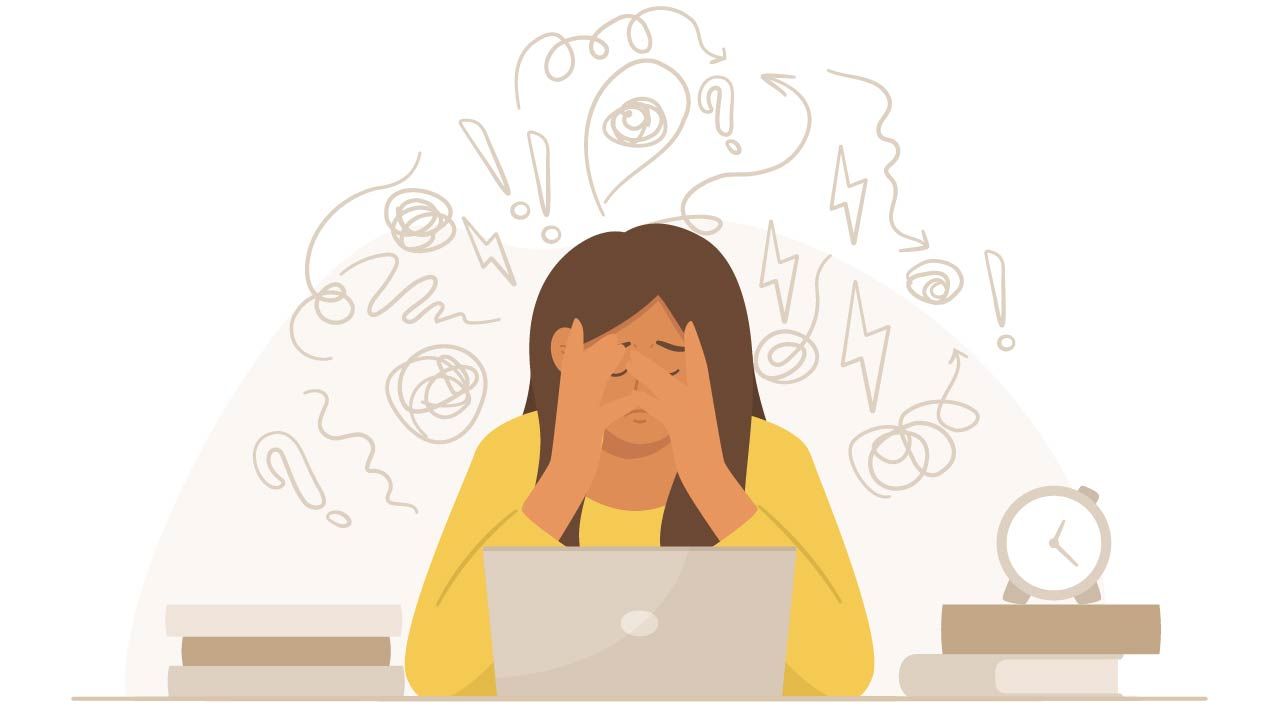
The Overlap Effect
Jan 30, 2024There’s a phenomenon that can cause burnout to spread faster than a rumor at a slumber party: The Overlap Effect.

The Overlap Effect happens when you have a near complete overlap of two or more of the different spheres of your life. For example, If you’re active in your church, your spiritual life and your social life might be a near-complete overlap. If you work from home, your home and work life might also be a near-complete merging of two spheres. To be clear, there’s nothing wrong with either of these scenarios, but it’s important to recognize that any time you lack separation and diversity in the various areas of your life, you could be making it easier for burnout to spread, and ensuring that once it starts, it’ll spread much more quickly. And in a culture that glorifies work over all else, the Overlap Effect is perhaps more prevalent than ever before.
To show you what I mean, here’s an example from my own life: my first career, before John and I started our own video production company, was in the music industry. For about 11 years, I lived on a tour bus and worked as a video technician for concerts and tours. That’s right, I was a roadie. (Now, before anyone starts picturing Kate Hudson from Almost Famous in her flowing bohemian dresses and John Lennon sunglasses, I want to point out that I said roadie, not groupie. Important distinction. Technician, not super-fan.) And let me tell you, touring life is tough. I started in my early twenties, basically right out of college, and no one could have prepared me for how tough that industry is— mentally, physically, and every which way you can imagine. Every show day, we put together— from the ground up— the huge lighting, sound, and video equipment that makes a live concert so energetic and fun for the audience. After the show, we stay up till one or two in the morning tearing everything down, putting it into boxes, and getting it back on the same semi-truck that it came off of that morning. There were typically three to five shows a week for a country tour, but there was one time we did eleven shows over a thirteen-day period, and by the end, people were dropping like flies. Touring is an industry that asks a lot of you as a human being and will push you to the limits of endurance and exhaustion.
As a roadie, you don’t have time for a social life outside of work. Even if you did, you wouldn’t have the energy because any precious little amount of time you have where you’re not working is spent sleeping. Each bus is the mobile living quarters for up to 12 people. While on tour, your crew becomes your family, your friend group, and your entire support network. You live together, eat together, work together, and sleep in the same cube of stacked bunks together. Literally everyone knows everyone else’s business. If you’re a snorer, sleep-talker, or sleep-farter, everyone will know about it. There’s no escaping these people.
Because of the nature of touring life, I experienced a one hundred percent overlap between my work and social life. It’s not an overstatement to say that my entire life revolved around work during that season of my life. So when burnout reared its ugly head halfway through my touring career, (which, in hindsight, was inevitable with the insane and endless eighteen-hour days) that blaze set in hot and fast.
And I wasn’t the only one. It’s true that touring is a young person’s game. Most people flame out by their early-to-middle twenties. Those that don’t, those that push through the burnout and stay become the embittered, curmudgeonly, resentful old road dogs that the rest of the fresh-faced, young, pre-burnout crew members avoid.
Touring is tough by its nature, but I think the most burnout-prone aspect of it was The Overlap Effect. Once I burned out at work— the bulk of my social and personal life went up in flames simultaneously. I resented my “road family” just as much as I resented my job. It was devastating and put me in a deep depression that took me many months— arguably years— to fully overcome. As I built my new business, I was also having to recreate a new social life from the ground up. I had to teach myself, for the first time, what real work-life balance is supposed to look like and how to have healthy relationships and healthy boundaries. But in doing so, I’ve learned to build it in a much more healthy way. And I have to say, not living with the people I work with gives me the freedom to be my own person, pursue my own interests, and cultivate friendships that have nothing to do with work.
Lack of separation gives burnout the dastardly advantage of less ground to cover. When you have any two aspects of your life that completely consume one another, it makes it easier for burnout to cause more damage more quickly.
Now, all this isn’t to say I’m a proponent of having neat, discrete, compartmentalized areas of our lives that never intersect. I think it’s a terrible idea to refuse to see your coworkers outside of a professional setting, or never invite your friends or coworkers to a family Christmas part. Life is supposed to be a bit messy, and the cross-pollination of these different aspects of our lives is part of what keeps it interesting.
But in a world where our work becomes a source of our identity, The Overlap Effect is more prevalent than ever before. But, by being aware of The Overlap Effect and taking measures to make sure one sphere of our lives doesn’t completely consume one another, we can slow burnout down. Having a little separation helps us keep the flames contained, or relatively contained, while we do the hard work of learning how to heal.
Don't miss a beat!
New moves, motivation, and classes delivered to your inbox.
We hate SPAM. We will never sell your information, for any reason.

